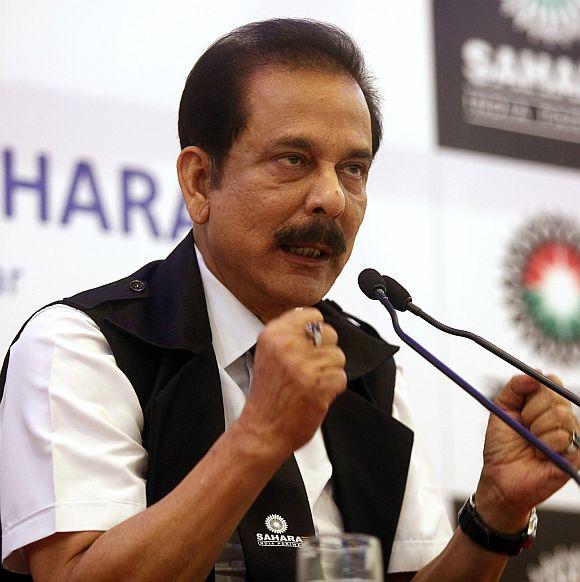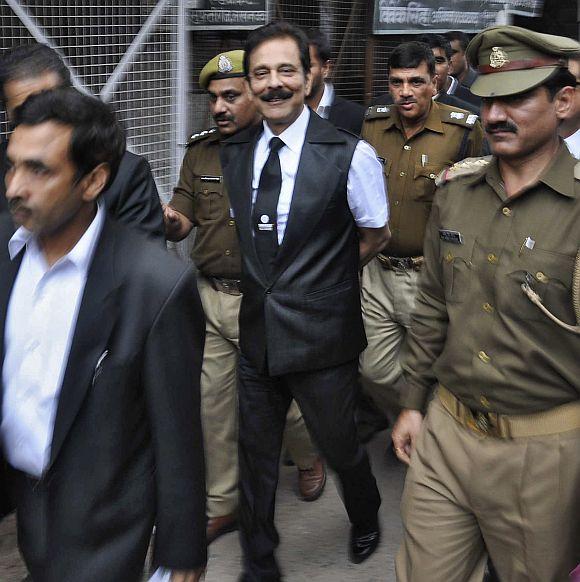Photographs: Reuters BS Reporter in New Delhi
Supreme Court to hear the matter on Monday, asks Sahara to improve the offer.
The Sahara group has proposed before the Supreme Court a new set of measures for the release of Sahara chief Subrata Roy from Tihar jail.
However, the judges said they had received the proposals late and had no time to consider these on Thursday.
…
Sahara offers new plan for Subrata Roy's release
Photographs: Reuters
Rajeev Dhavan, senior counsel for the Sahara group companies, said according to the new proposal, Sahara would pay Rs 2,500 crore (Rs 25 billion) within three working days and the remaining portion of Rs 10,000 crore (Rs 100 billion) in 60 days, either in cash or bank guarantees.
After the judges objected to the proposal being submitted late in the evening, Dhavan said this was because he had received the proposal in the afternoon.
…
Sahara offers new plan for Subrata Roy's release
Photographs: Courtesy, Sahara
Following this, judges K S Radhakrishnan and J S Khehar said they would consider the new proposals on Monday afternoon. They asked the Sahara lawyers to improve the offers to the extent possible by that time.
Dhavan urged Roy be granted leave from prison for the next three days so that he could arrange for the funds required for his release. However, the judges didn’t respond to this.
…
Sahara offers new plan for Subrata Roy's release
Photographs: Reuters
On Wednesday, the judges had told the Sahara counsel if Roy and two Sahara directors were to be released from prison, the accounts of the group companies had to be stated, to enable payment.
To this Sahara counsel Ram Jethmalani said custody of the officials wasn’t justified.
S Ganesh, another Sahara counsel, said the company had collected funds from investors in remote parts of the country, where bank facilities weren’t available; they were redeemed in cash.






article